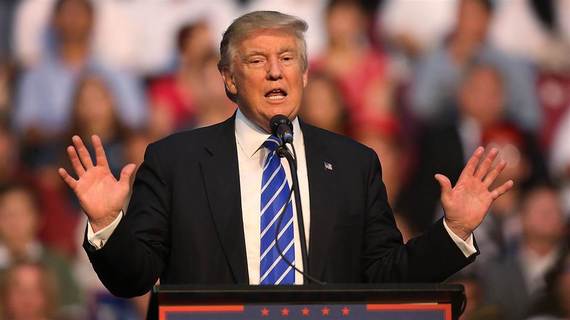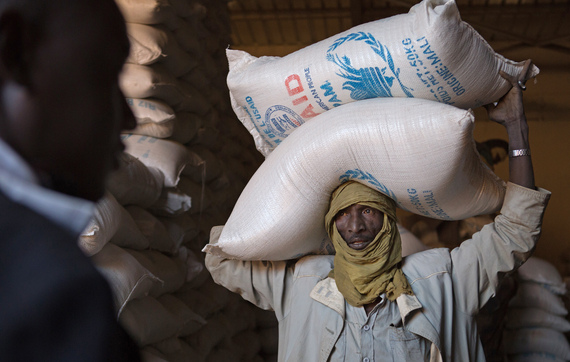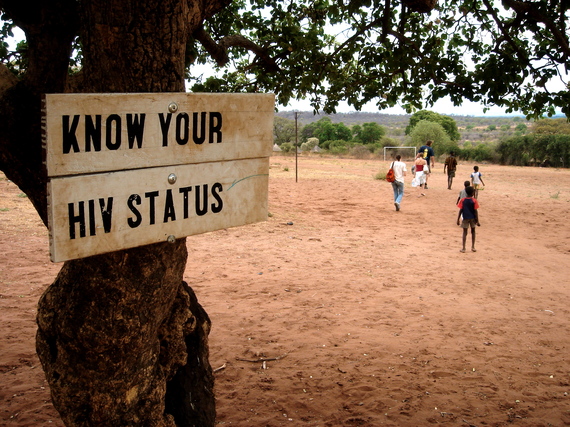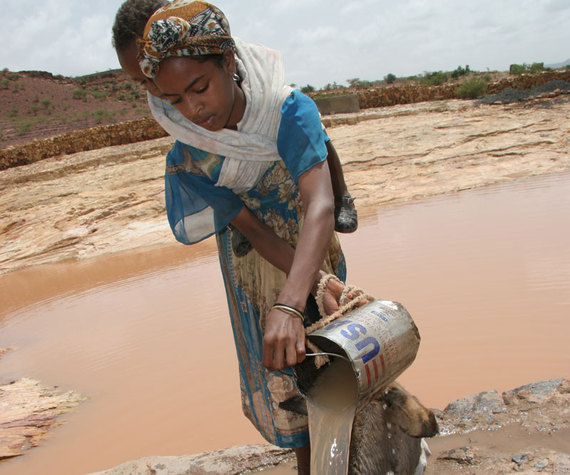Trump Tower in midtown Manhattan has been the scene of scores of high-profile meetings since Donald J Trump's surprise election to the U.S. Presidency last month.
If I were to receive an invite to Trump Tower for a briefing with the president-elect, I'd be on the first flight to New York.
It's fair to say that Mr. Trump's victory sent shockwaves around the world, and those waves were felt no less keenly in Africa.
To date, the future president has given few indications of his views on Africa. His thoughts on that continent might not be as simplistic as suggested by a South African analyst who suggested the new administration's African policy would amount to little more than "where's that?"
But equally, Africa's economic and political leaders are acutely aware that the poorest continent in the world could suffer if President Trump were to strongly advance the 'America First' policies outlined in his campaign.
While China and Mexico appear to be the two countries most immediately in the sights of the incoming President, Africa's trade with the United States could be substantially affected if US protectionism leads to a tightening of policies towards agricultural and manufacturing trade.
Another - very significant - impact could be on the United States' multi-million dollar development aid to Africa.
The US is currently Africa's largest bilateral aid donor, with the Organisation for Economic Cooperation and Development (OECD) estimating that spend at approximately $9bn, in 2015.
A new report by the Institute of Chartered Accountants in England and Wales predicts that under a Trump presidency, the US is likely to streamline multi-billion dollar aid spending to countries such as Democratic Republic of Congo (DRC), Tanzania and Kenya, while Economic Insight Africa predicts that the new Republican administration will cut overseas spending to provide increased budgets for infrastructure at home.
Whatever the outcome, it's likely that policies towards Africa and African development will change from those pursued under the Obama administration over the past eight years.
In that time, the US government expanded its presence and economic engagement with Africa, opening new offices in Angola, Tanzania, Ethiopia and Mozambique, expanding its presence in Ghana, and re-engaging with the African Development Bank.
In September, President Obama told the annual gathering of the US-Africa Business Forum that, as president, he had sought to transform the relationship between America and Africa to one of equal partners.
He talked of Africa as "home to some of the fastest-growing economies in the world - an Africa of telecom companies and clean-tech start-ups and silicon savannahs, all powered by the youngest population on the planet," and said that Africa wants trade, not aid with America and other regions of the world.
Unlikely as it is, I'd jump at the opportunity to take that elevator ride up Trump Tower in New York. What better opportunity to tell the world's most influential leader why continuing to fund African development makes sense.
Indeed, while the record of the last Republican president, George W Bush, has been criticized in many areas, his work on Africa is beyond reproach.
From the historic peace agreement between Sudan and South Sudan in 2005, to his work and investment in combatting HIV/AIDS and malaria, the 43rd President's legacy in Africa is, in the main, a good one.
Indeed, during his eight years in office, President Bush increased aid to the continent by more than 640%. At more than $5 billion a year in humanitarian aid to the region, President Bush gave more assistance to Africa than any other president.
His commitment, and that of President Obama, resulted in a seven-fold increase in the number of people receiving anti-retroviral drugs to treat HIV/AIDS between 2005 and 2012, while since his time in the White House the share of Africans who are living in extreme poverty has fallen from 56% to a level of 43% in 2012.
So, the Republican party has a proud record on Africa in recent decades and, although a report published by CNN earlier this month predicted that Africa would slide down the list of foreign policy priorities for a Trump administration, there's also a sense that the new presidency will be pragmatic in its decision-making.
Investing in African development makes sense - for economic reasons, but also for security reasons. Stronger economies throughout Africa build societies where youth have employment and business opportunities, where children can access education, and where militants find little support for their cause.
That's the message I'd bring to the top of that elevator ride in Trump Tower - that we all have an interest in working for Africa's continued development.